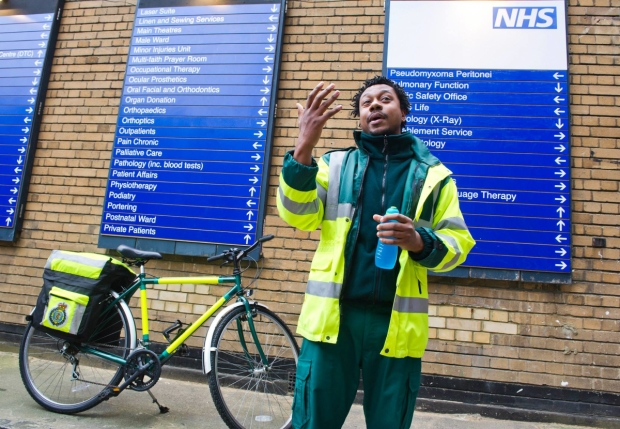Matt Trueman: Political theatre will never swing an election
Last week’s election result was a sharp reality check for the theatre community

© Tristram Kenton
It has been said that we're currently in a golden age of political theatre. Playwrights like Mike Bartlett and James Graham, Caroline Horton and Jack Thorne, Tim Price and Rebecca Lenkiewicz, and many more besides, are making explicitly political work – most of it with a left-wing bent. Almost every major theatre in London has programmed some political work of late – and some of that has even wound its way into the West End. How could it have made so little impact?
Well, where to start? Could it be that 8% of the population account for 28% of audiences, as the recent Warwick Commission report found? Could it be that the majority of theatre audiences are seeing apolitical work, with West End seats far outnumbering those in subsidised houses? Or that political theatre so often ends up preaching to the converted, espousing left-wing opinions to left-wing audiences?
Take a show like Who Cares at the Royal Court, Michael Wynne's verbatim piece about the NHS. The real question is this: Who comes? Think about it: who goes to see a play about the NHS except for those that are already interested in the NHS? You don't devote an evening or spend £25 if you're ambivalent about the subject. You pick another play to go and see, something more up your street.
Wynne's anticipated that. You can see it in the show's line of argument. Who Cares begins by cheering the utopian founding principles of free healthcare for all and marvelling at the operations scale, before it picks at the problems facing the NHS today: A&E waiting times, excessive bureaucracy, a lack of resources. In other words, it starts with sentiment – WE ♥ THE NHS – and reasons its way towards realism and reform, possibly even some form of privatisation. To avoid preaching to the converted, to challenge the assumptions its audience likely arrive with, Who Cares veers very close to taking a right-wing line.
Explicitly political theatre – that which sets out to change its audience's minds – is often labelled agitprop theatre, short for agitational propaganda. The first word is key. It has to agitate its audience, "to stir or disturb" them. It needs to exist in opposition, to rub an audience the wrong way and confound views they arrived with. Wynne's approach is one way to do that. The other is, as Honour Bayes suggested in The Stage on Friday, to find a new audience, one less inclined to metropolitan liberalism, the unconverted as it were.
I'm not so sure it's as simple as that. Rupert Goold, who has upped the Almeida theatre's political clout no end with shows like King Charles III and Little Revolution, said this on Twitter:
Interesting time for political theatre now. Like the left it will have to remake itself if it genuinely wants to be a force of change.
— rupertgoold (@rupertgoold) May 8, 2015
But what does that last phrase – "a force for change" – actually mean? Is it as simplistic as swinging an election, convincing an individual to vote one way rather than the other? Does any single show change an audience member's opinion?
I think it's subtler than that. Theatre has politicised me, but it has done so incrementally, over a number of years. There wasn't a single show that changed my position on the political spectrum, one show that blasted the scales from my eyes and shunted me leftwards. It has done so over time, little by little, show by show.
On Friday, I went back to my old school – a private school in South West London – for a meeting. The previous day, the pupils had held a mock election of its own. The result was a Conservative landslide with – ahem – 92% of the vote. Even Putin can't get 92% of the vote.
Why so skewed? It's obvious. All these kids come from families wealthy enough to afford the fees. They are surrounded by one another, all like-minded, all comparatively secure, all bright and set-up in life. They don't encounter anything different, anything other than themselves. Most won't come into contact with people worse off than they are, with people that rely on the state's support, so they can't fully appreciate the left-wing argument.
That's what theatre can shift. More than any other artform, it can show us 'the other' – other people, other opinions, other lives. Simon Stephens's Port testifies to working class life in Stockport. Alexander Zeldin's Beyond Caring shows us the day-to-day realities of life on a zero-hour contract. Dalia Taha's Fireworks and Dania Gurira's Eclipsed show us life in far-off parts of the world, situations that might seem extraordinary to us, but are all too everyday to their subjects. Theatre is an inherently empathetic artform and it instils empathy in its audiences.
It shouldn't stop there, of course, and Goold and Bayes are both right to demand more from the artform, but let's not forget that, even as it is, theatre is a force for change. It's just that those changes don't always show up immediately.












